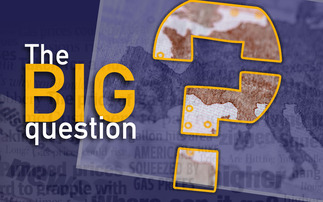Over the past couple of decades, credit rating agencies have been steadily coming into the public consciousness, for a number of reasons.
Conflicts of interest
But while some have praised ACRA for offering an alternative (which is a vital endeavour in this field), this notion of it becoming the vehicle to display Russia's creditworthiness to international investors is the very reason why ACRA is unlikely to work.
And while the Big Three are understood to be compromised by way of financial influence, for ACRA, it is being suggested that the ratings will also be compromised, but by way of political influence - something with ACRA's chief executive, Ekaterina Trofimova, has been at pains to refute.
Unfortunately for the ACRA, it is unlikely that these claims will recede, and whilst they remain the agency will forever be under President Putin's shadow, which has a demonstrable effect upon its future and its aims.
As the agency aims to demonstrate Russian creditworthiness, it is not reasonable to suggest that international investors would trust ACRA's ratings over that of any of the Big Three, irrespective of the reasoning behind their ratings.
One way to resolve this would be for research to compare the ratings of Russian debt by ACRA and the Big Three over a number of years to examine any divergences - but this will take time, and it is likely, with the oligopolistic environment, that ACRA would not even exist by the time the research would be completed.
BRICS initiatives
So, while the endeavour shown by ACRA is unlikely to be rewarded by institutional investors, it also casts a huge doubt on other endeavours being undertaken by other BRICS members.
The leaders of the BRICS bloc (Brazil, Russia, India, China, and South Africa) declared after a summit in 2015 that the bloc wanted to set up a rating agency that would fairly represent their interests.
It is very likely that this process will be accelerated after the recent news that Moody's have downgraded China's sovereign rating for the first time in 30 years - warning of its increasing levels of debt.
Yet, the same problem emerges. Developing a rating agency, from scratch, for the purposes of representing the interests of a particular nations (or group of nations) will not be successful.
This is not because it should not be, but simply because investors will not be able to 'trust' in the independence (or source of conflict) from these new agencies.
It is particularly difficult for countries to facilitate the private growth of an agency within their jurisdiction without that agency being accused of being an agent for the host government.
So in that sense, this current wave of state-sponsored action in the rating industry will, unfortunately, not threaten the hegemony of the Big Three.
What can threaten this hegemony is the globalised support for non-profit endeavours such as that of the International Non-Profit Credit Rating Agency (INCRA) being developed by the Bertelsmann Foundation, or the Credit Research Initiative being developed by the National University of Singapore (or, as this author has suggested, an amalgamation of the two).
This is because, at once, we would remove the inherent conflict of the issuer-pays remuneration model and the 'perceived' conflict of political influence, all while developing a 'forward-thinking' mentality that is sorely missing from the credit rating environment today.
Dr Daniel Cash is a lecturer in law at Aston University













